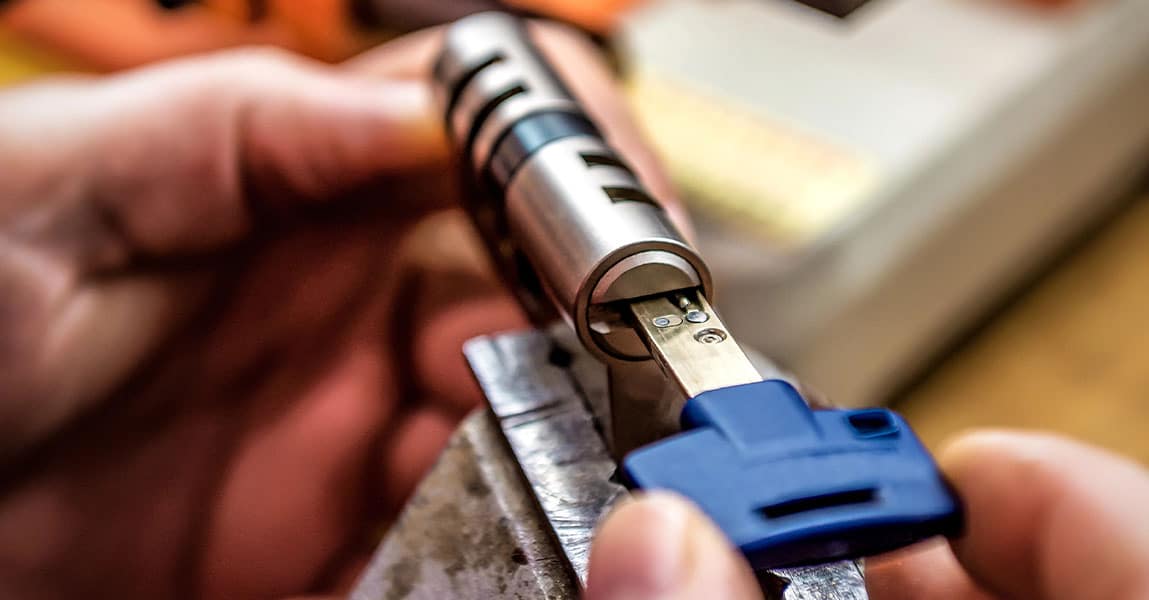Renovations bring a sense of renewal to any home. Fresh paint, updated fixtures, or new flooring can make a space feel brand new. Yet after all the construction dust settles, there’s a crucial step many homeowners overlook: changing the locks. Even though this task may seem minor compared to everything else involved in a renovation, it’s one of the most important measures you can take to protect your property and your family.
The Overlooked Risk After Renovations
During a renovation, many people enter your home. Contractors, electricians, plumbers, painters, cleaners, and delivery workers come and go for weeks or even months. Most are trustworthy professionals, but you rarely know every person who has had access to your keys or doors. Keys can easily be copied, misplaced, or passed around among subcontractors without your knowledge.
Once the project is complete, those same keys may still work. Even if you trust your contractor, the reality is that multiple unknown individuals may have had access to your home. Changing your locks ensures that only you and your family have control over who can enter once the work is finished.
We often remind clients that home security begins with knowing exactly who holds a key. After any renovation, that certainty disappears unless the locks are replaced or rekeyed.
Rekeying vs. Replacing: Which Is Better After a Renovation?
Homeowners often ask whether they need to replace locks entirely or if rekeying is enough. Rekeying means altering the existing lock mechanism so that old keys no longer work, while replacement means installing brand-new locks.
If your locks are in good condition and match your home’s design, rekeying can be a practical and affordable option. It provides the same security benefit without requiring new hardware. However, if the renovation included new doors, handles, or aesthetic upgrades, full replacement might make more sense for both appearance and function.
We usually suggest evaluating the age, wear, and quality of your current locks before deciding. For instance, older locks can become loose or corroded during heavy renovation work. Replacing them gives you the opportunity to upgrade to stronger deadbolts or smart locks that integrate better with modern security systems.
For professional help assessing the best approach, a trusted locksmith in Calgary can examine your doors and recommend whether rekeying or replacement is the right move for your home.
Why Contractors and Subcontractors Pose a Security Concern
Renovation projects often involve more people than you expect. Your main contractor might hire subcontractors for specific tasks. Each one might receive a key to access your property while you are at work or away. Even if you only gave one key to the contractor, you can’t guarantee how many copies were made along the way.
Most contractors are honest and responsible, but all it takes is one misplaced key for your home to be at risk. Keys can easily end up in the wrong hands, and you may never realize it until much later.
Changing locks eliminates the unknown. It gives you peace of mind that everyone who had temporary access no longer does. It’s not about mistrusting people but about maintaining control of your home’s security after weeks of open access.
Protecting New Additions and Valuables
Many renovations involve installing high-value items like appliances, electronics, or fixtures. These upgrades increase not only your home’s comfort but also its attractiveness to potential intruders.
Once workers have seen what’s inside, the layout, and how to enter, your property becomes more exposed. It’s easy for someone who had access before to re-enter unnoticed if locks remain unchanged. By replacing or rekeying, you reduce that possibility.
Locksmiths often encounter cases where homeowners regret not securing their property sooner after renovations. Small preventive measures like replacing locks can save significant stress and loss later.
The Hidden Wear on Locks During Construction
Renovations can be tough on doors and locks. Dust, vibration, and constant movement cause small mechanical parts inside the lock to shift or wear down. Even if your keys still work, the internal components might not function as smoothly as before.
When locks start sticking or keys turn roughly, that’s often a sign of internal wear. Changing them after renovations restores smooth operation and prevents unexpected lockouts down the road.
In many cases, dust from drywall or sanding can also clog lock cylinders. Once this fine debris enters the mechanism, it can cause stiffness or jamming over time. Replacing or cleaning locks right after construction helps avoid future maintenance issues.
Upgrading to Modern Security While You’re at It
A post-renovation lock change also presents a good opportunity to upgrade your home security. Modern locks offer features that go beyond simple key entry. Smart locks allow keyless entry, smartphone control, and integration with alarm systems or home automation platforms.
Since renovations often include electrical or Wi-Fi upgrades, this is the perfect moment to modernize your security setup. Combining smart locks with cameras or motion sensors strengthens protection while improving convenience.
If you decide to upgrade, make sure the new locks match your doors and existing setup. Poor installation or incorrect hardware selection can reduce both security and ease of use.
Insurance and Safety Considerations
Few homeowners realize that not changing locks after renovations could affect their insurance coverage in some cases. If a break-in occurs and the insurer finds that multiple people had keys, your claim could be questioned.
Updating locks shows due diligence in protecting your property. It also reassures insurers that you’ve taken reasonable steps to maintain home security. For rental properties, changing locks after major work may even be a legal requirement depending on local regulations.
It’s always wise to document new locks, take note of serial numbers, and store spare keys safely. This helps verify your claim in case of any future incident.
How to Manage Keys During Future Projects
To avoid the same problem in future renovations, it helps to plan key management ahead of time. Provide contractors with temporary access using coded locks or smart systems that allow easy revocation once the project ends.
Some homeowners prefer using a lockbox system with a changing code rather than giving out physical keys. This method limits unauthorized duplication and simplifies control over who enters.
If traditional keys are still used, consider labeling them discreetly instead of writing your address or unit number. This small precaution makes a difference if keys are misplaced.
When to Schedule the Lock Change
Timing matters when planning a post-renovation lock change. The best moment is right after the final inspection or cleaning, once all contractors and workers have completed their tasks. Waiting until everyone leaves ensures no one who still needs access is locked out.
If your project spans several weeks, consider rekeying temporarily halfway through if you feel uncertain about who holds copies. Then replace or upgrade the locks once the renovation is fully complete.
Changing locks is a simple process that usually takes less than an hour per door, depending on the type of hardware. You can schedule it conveniently to fit your move-in or post-renovation cleaning day.
Added Benefits of Professional Lock Replacement
Professional locksmiths not only replace locks but also assess overall door security. They can identify weak hinges, misaligned strikes, or damaged frames that reduce protection.
After renovations, even small changes to door alignment can affect how a lock functions. A locksmith ensures everything fits correctly, preventing sticking or improper latching.
Additionally, experts can match the lock type to your specific needs. Whether you want keyless convenience, extra reinforcement, or aesthetic harmony with new fixtures, they help you choose the right option.
When done properly, a lock replacement enhances both safety and daily ease of use. You’ll notice smoother operation and renewed confidence every time you lock the door.
How to Choose the Right Professional for the Job
Not all locksmiths offer the same level of service. Look for licensed and insured professionals who have experience with residential security and modern lock systems. Checking reviews or local credentials helps ensure reliability.
Working with someone familiar with Calgary’s building standards is important, especially if your renovation involved structural changes or new doors. An experienced technician can align the installation with both safety regulations and design requirements.
If you’re ready to secure your property after a renovation, you can contact us to schedule a professional evaluation or lock change service. It’s a small step that provides long-term peace of mind.
Frequently Asked Questions
Why is it necessary to change locks after renovations?
Because multiple people may have had access to your property during the renovation. Changing locks ensures that no unauthorized keys remain in circulation and restores full control over your home’s security.
Is rekeying enough, or should I replace all locks?
Rekeying is usually sufficient if your locks are in good condition. However, if your locks are old, damaged, or you’re upgrading the look of your doors, replacing them entirely can be a better option.
How soon should I change the locks once the renovation is complete?
Ideally, change or rekey your locks immediately after the final day of work. Once all workers and contractors have left, that’s the best time to secure your home.
Can smart locks be installed during a lock change?
Yes. Many homeowners use this opportunity to install smart locks that integrate with security systems, providing keyless entry and better control over access.
What if I lose track of who has a copy of my key?
If you are uncertain about who holds a key, replacing or rekeying is the safest choice. It eliminates all existing copies and gives you a new, exclusive set of keys.

